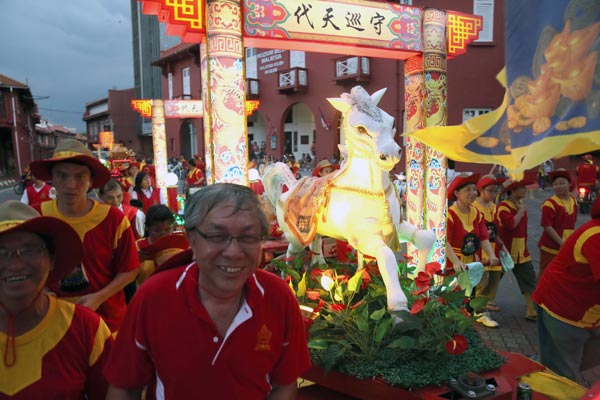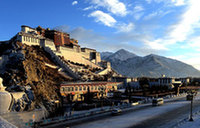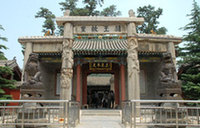Malacca interlude
 |
|
A parade is staged at Lian Puan Kiong in Malacca, Malaysia, to celebrate the divine tour of the deity and the anniversary of the temple's construction.[Photo by Jiang Dong/China Daily] |
For centuries, this port city has attracted sailors, traders and adventurers of every race and creed. Pu Zhendong soaks up the history, the lore and the culture today.
|
 |
It is a place that invites nostalgia for an Asia that used to be slow, sleepy and forgotten. As early as the 13th century, Prince Parameswara, a Hindu political refugee from Sumatra, founded the city on the site where he saw his dog chasing a chevrotain, also known as mouse deer, and converted the land to Islam.
The Chinese came next, with Admiral Zheng's fleet. Malacca became a tributary nation under the protection of China's Ming Dynasty (1368-1644).
From 1551 to 1946, the port city was successively colonized by Portugal, the Netherlands and the United Kingdom.
Like Carthage, Malacca prospered throughout history because of its strategic location on the Strait of Malacca, and it grew into a bustling, cosmopolitan commercial hub connecting Asia, the Middle East and Europe.
However, in the 17th century, the conquerors began to lose interest in developing the city. The Dutch favored Jakarta while the British preferred Singapore. With its river silted up, Malacca gradually lost its luster.
By the time British novelist Somerset Maugham arrived in Malacca at the beginning of the 1920s, the city had "the sad and romantic air of all places that have once been of importance and live now in the recollection of a vanished grandeur".

















